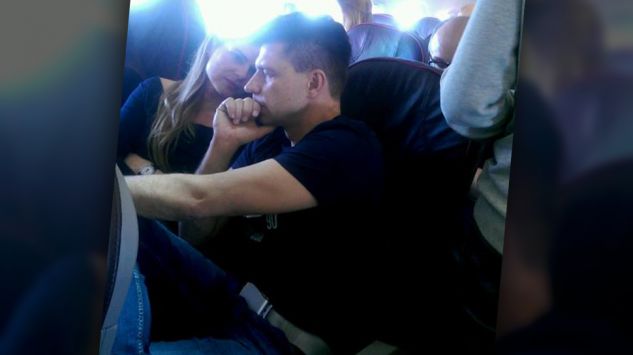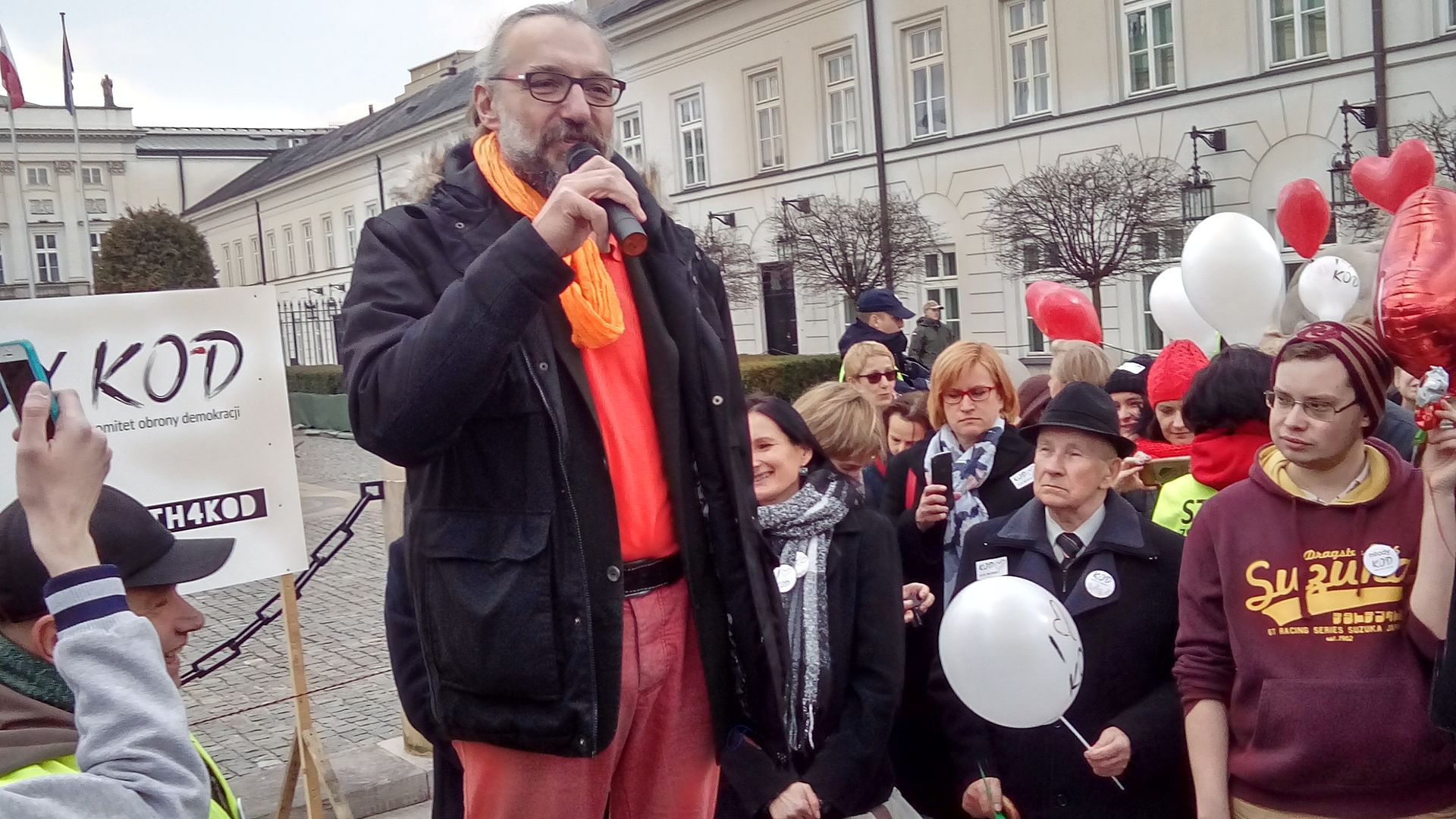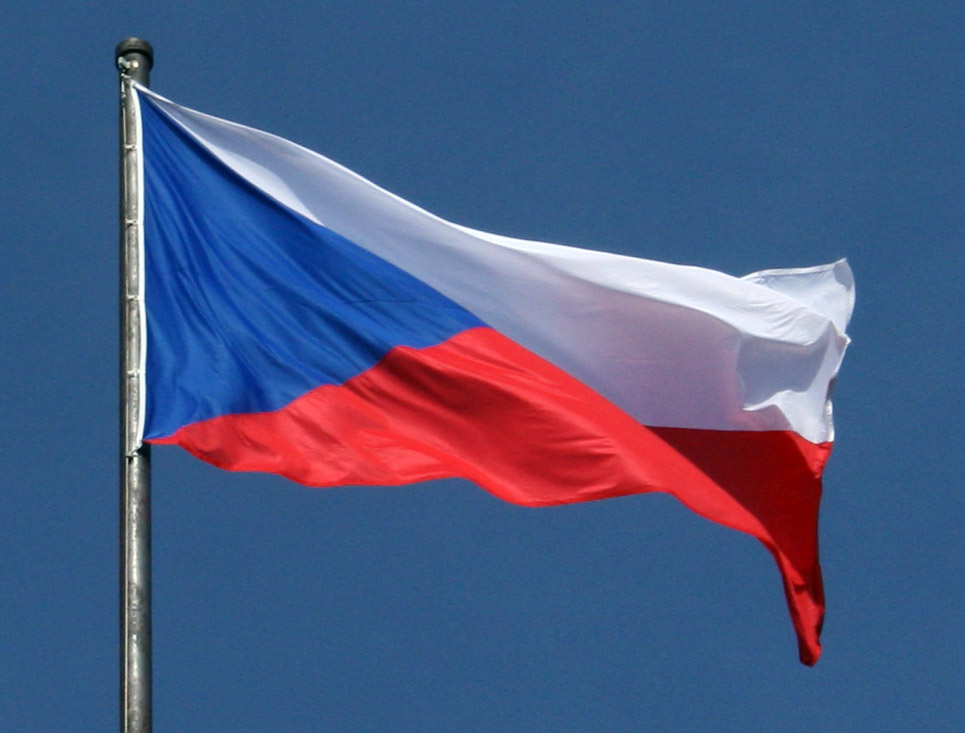By Olivier Bault.
Poland – During the Christmas break between the sessions of the Polish Parliament, from December 17 to January 10, MPs from the two liberal parties (the PO, of which Donald Tusk was the leader before his departure for Brussels and Nowoczesna, a party created before the 2015 elections) took turns to continue their 24-hour occupation of the plenary hall of the Diet, the lower house of the Polish parliament.
These deputies claiming to defend democracy have at times attracted the mockeries of the online community, for example when they published on the social networks the photos of the Christmas Eve. But what has the most made laugh all those who do not consider that democracy is threatened, –who are nevertheless the large majority, according to the low number of protestors before the Diet and to the polls that persist in anticipating a clear victory of the PiS in the case of a new election — was a picture taken with a phone in a plane. On December 30, Ryszard Petru, the leader of Nowoczesna, claimed that the situation was dramatic and that although he was not on guard for New Year’s Eve (he had already spent the Christmas Eve at the Diet), he was wholeheartedly close to the deputies whose turn it was.
On December 31, a video appeal to the nation of the leader of Nowoczesna, this rich liberal-libertarian considered in Poland as the candidate of the banks, much like Macron in France, circulated on the Internet. The same day he was photographed without his acknowledgement together with a member of his party on a plane to Portugal where the two politicians went for a small private escapade. Both of them are married, but not together, and here is the photo that made the buzz on social networks:

Petru apologized on his return from Portugal for his clumsiness, but he put his political friends in the embarrassment, since it was a bit spotty compared to the dramatism of his remarks the day before.
But far more serious is the situation of Mateusz Kijowski, the leader of the KOD, or “committee for the defense of democracy”. Two rather distant media from the PiS (the daily Rzeczpospolita belonging to a businessman close to the PO and the Onet.pl site, which belongs to the German-Swiss Axel Springer and the highly anti-PiS TVN group) learned from their readers on January 4 that Mr. Kijowski, who claimed so far to gain nothing by virtue of his militancy for the KOD, had gained through his computer company 91,000 zlotys for a year.
It is the equivalent of more than € 20,000 paid with the money collected during the KOD demonstrations. For Kijowski, it was the partial reimbursement of the cost of real computer services, but several voices from the KOD questioned the reality of these services and KOD commissioned an internal audit of its finances. The newspaper Gazeta Wyborcza, which has practically transformed itself over the past year into the KOD’s press organ, has joined the appeal for Mateusz Kijowski’s resignation, but the latter refuses and was even present with a microphone at the mini- demonstration of the KOD in front of the Parliament on January 11, the day of the opening of a new session of the Diet and the Senate.

The liberal-libertarian opposition (PO + Nowoczesna + KOD) demanded the publication of video recordings of all the cameras in the room where the vote on the budget took place on December 16 (the plenary hall was then occupied by MEPs of a part of the opposition who held the tribune and the chair of the President of the Diet). This eventually happened on January 4, weakening the discourse of this opposition — which used to call itself “total” — since it became clear that the quorum was reached and that the MPs of the opposition were free to enter the room to vote.
For Paweł Kukiz, the leader of the second largest opposition party, Kukiz’15 (bringing together conservatives and nationalists), that it’s obvious, although he had previously violently criticized the form, that it complied with the rules. Let us also recall that the PSL, former ally of the PO in the coalition that governed Poland from 2007 to 2015, stopped participating in the occupation of the plenary room of the Diet even before the Christmas celebrations.
After his return from Portugal, Ryszard Petru of Nowoczesna eventually made a constructive proposal to end the parliamentary crisis, which caused splits between the two protesting parties, the PO immediately refusing any compromise. This proposal was that the Senate, dominated by the PiS, adopt certain amendments of the opposition so that the budget would return to the Diet and could thus be the subject of a new vote, this time under normal conditions. But when the PiS accepted the proposed compromise, Petru seemed to have changed his mind, saying that President Andrzej Duda should bring the vote of December 16 to the Constitutional Court in order to rule on its legality.
A procedure which would make the 2017 budget provisional for several more months and which the PiS, by its absolute majority, refused. Jaroslaw Kaczyński also said he did not want to create a dangerous precedent by which minority parties in parliament could assume the right to block majority votes by violating the rules of parliament and the Polish constitution (which does not provide for the possibility of blocking physically votes in parliament).
The Nowoczesna party nevertheless stopped the blockade of the plenary chamber of the Diet before the deputies returned, leaving the deputies of the PO on their own. Inflexible, the PO continued to occupy on its own the tribune of the Diet on Wednesday, January 11, at the opening day of the new session of the Polish parliament, encouraged by their former leader Donald Tusk who became president of the European Council. He said on January 11 in an interview that if the PiS did not backtrack, it would take the risk that the legality of the 2017 budget would be called into question and threatened the allocation of European funds. Having once again failed to mobilize the street to defend its cause, the liberal-libertarian opposition thus again appealed to Brussels.
On January 12 the PO finally decided to end its occupation of the Diet tribune, promising other forms of protest and also bringing the December 16 vote of the budget to the Constitutional Court. In the morning, the Minister of the Interior Mariusz Błaszczak recalled in a radio interview that according to the Polish law, blocking the votes of the Diet was punishable by 10 years of imprisonment and that it was envisaged to prosecute against MPs guilty of the offense of attacking democracy. After the end of this unprecedented parliamentary crisis, PiS leader Jarosław Kaczyński announced that his party would work on a modification of the Diet’s rules so as to introduce penalties to deter such behavior in the future .




